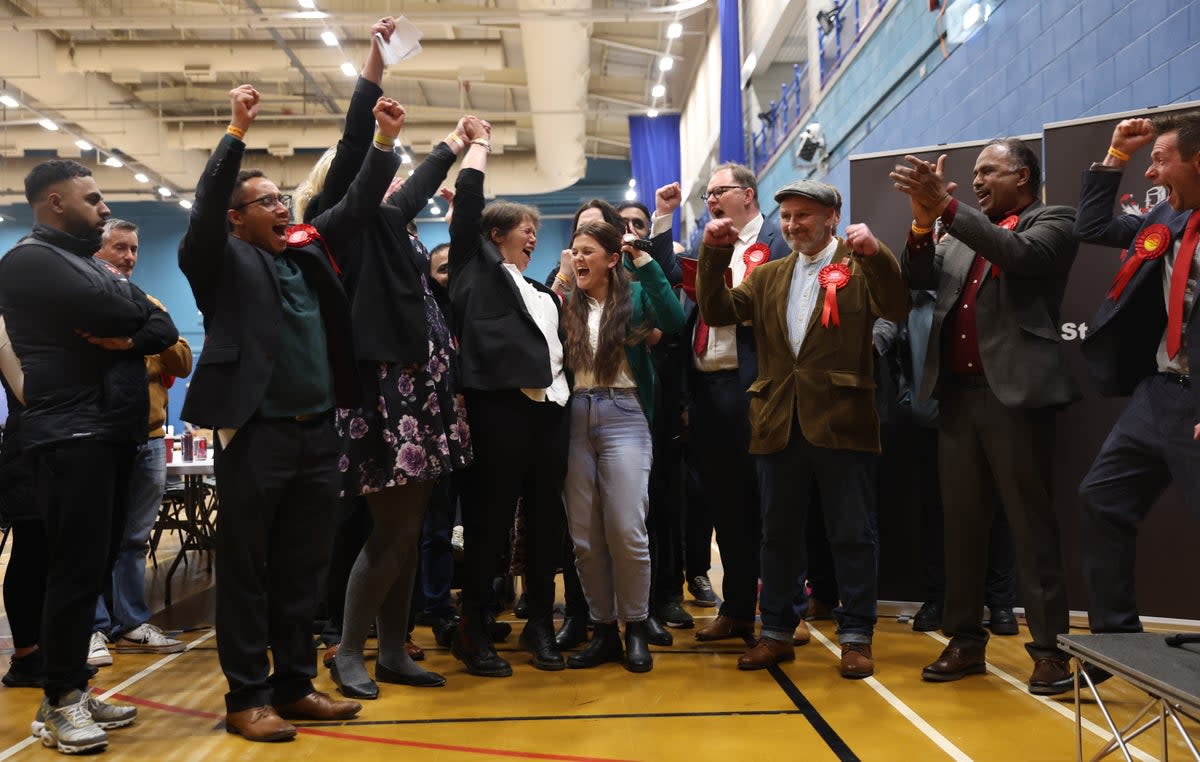‘Terrible’ night for Tories as Labour takes key councils in local elections

The Tories suffered a “terrible” night in Rishi Sunak’s first electoral test as prime minister, with Labour making significant early gains.
Labour is on course to win the next general election after taking control of a series of key councils, Shabana Mahmood has said.
The party’s national campaign coordinator said the local poll had been a “disaster for Rishi Sunak and the Tories” so far. And she said the results show Labour is “on course for a majority government”.
The Liberal Democrats also hailed a “groundbreaking” set of results, which leader Sir Ed Davey said show people are “sick to the back teeth” of the Conservative government. Mr Davey said the party was “exceeding all expectations”.
Meanwhile, veterans minister Johnny Mercer said it was a “terrible night” for the Conservatives. And transport minister Huw Merriman said the Tories had a “difficult night”, which “may get more difficult”.
It came as polling guru Sir John Curtice said, based on the results so far, the Tories could lose around 1,000 seats - in line with the most pessimistic forecasts.
In Mr Sunak’s first electoral test as prime pinister, the Tories suffered major losses while Labour gained control of key councils including Plymouth - formerly run by a minority Tory administration.
Labour also took control of Stoke-on-Trent, another general election battlegrounds.
In Hertsmere, where deputy prime minister Oliver Dowden is MP, the Tories lost control of the council, with 13 councillors voted out while Labour gained seven and the Lib Dems six.
Tamworth, Brentford, North West Leicestershire and East Lindsey also fell from Tory administrations to no overall control.
West Lindsey remained under no overall control but the Lib Dems replaced the Tories as the largest party.
Labour replaced the Tories as the largest party in Hartlepool and Worcester. And the party took control of Medway Council in Kent for the first time since 1998 after winning 30 of its 59 seats.
With results declared from 51 of the 230 councils, the Conservatives had lost control of five councils, while Labour had gained two.
The Conservatives had lost 134 seats, with Labour gaining 107, the Liberal Democrats gaining 42 and the Greens gaining nine.
Conservative Party chairman Greg Hands said the local election results have been “disappointing”, but claimed the results were “not that great” for Labour either.
He told GB News: “We always said it would be a difficult night for the party, the independent projections were all that we were going to lose 1,000 seats.
“It’s still early days so far but if I might say, it’s not been that great a result for Labour in some areas.
“We’ve actually gained seats in Peterborough, Sandwell, Bassetlaw, other areas that Labour need to win at the next election.”
Some Tories sought to blame national factors including the turmoil of Boris Johnson and Liz Truss’s premierships. Mr Mercer told the BBC the Plymouth result was due to local factors and insisted that the prime minister was “the sort of strong leader this country needs at this time”.
Stoke-on-Trent North’s Tory MP Jonathan Gullis told Sky News that councillors had “suffered because at the end of 2022, the Conservative Party as a brand was certainly damaged”.
And Northern Ireland Secretary Chris Heaton-Harris said the Tories experienced a "bit of a blip" following the turmoil in No 10 which saw Mr Johnson and Ms Truss ousted before Mr Sunak took office.
He attempted to present the expected losses as mid-term blues for the Tories, telling Sky News: "The British people are a very sensible group of folk and they understand what's important.
"Occasionally they like to give political parties a bit of a reminder of who the politicians serve. Certainly when you get into being mid-term in a government you get quite a bit of that."
The contests were the first to be fought under new rules requiring voters to carry photographic ID, and the elections watchdog said some people were turned away from polling stations.
An Electoral Commission spokesman said: “We already know from our research that the ID requirement posed a greater challenge for some groups in society, and that some people were regrettably unable to vote today as a result.
“It will be essential to understand the extent of this impact, and the reasons behind it, before a final view can be taken on how the policy has worked in practice and what can be learned for future elections.”
Tom Brake of Unlock Democracy, who is leading a coalition of groups opposed to the policy including the Electoral Reform Society, Fair Vote UK and Open Britain, said: “Today has been a dark day for British democracy.
“Reports from all over the country confirm our very worst fears of the impact of the disastrous policy which has been made worse by the shambolic way it has been introduced.”
More follows...
